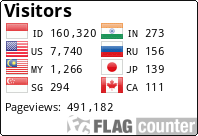Kemampuan Pemahaman Matematika Siswa SMP melalui Pembelajaran Connected Mathematics
DOI:
https://doi.org/10.33369/jpmr.v5i2.11530Keywords:
Kemampuan pemahaman matematis, Connected MathematicsAbstract
Pembelajaran yang dimulai dengan sesuatu yang dekat dengan pikiran dan kehidupan sehari-hari siswa akan memudahkan siswa memahami konsep dan prinsip matematika. Tujuan penelitian ini adalah untuk mengetahui perbedaan kemampuan pemahaman matematis antara siswa yang diajar dengan model connected mathematics dengan konvensional. Sampel penelitian ini dipilih secara intact group dari siswa di SMP N 1 dan SMP N 6 Kota Manna Bengkulu Selatan. Ini adalah penelitian eksperimen semu, dengan instrument tes kemampuan pemahaman matematis. Teknik analisis data penelitian ini adalah anakova. Simpulan penelitian ini adalah kemampuan pemahaman matematis siswa yang mengikuti pembelajaran matematika model CMP untuk pokok bahasan variabel dan tempat kedudukan lebih baik dibandingkan dengan kemampuan pemahaman matematis siswa yang mengikuti pembelajaran matematika konvensional.
References
Andriani, D., Widada, W., Herawaty, D., Ardy, H., Nugroho, K. U. Z., Ma’rifah, N., … Anggoro, A. F. D. (2020). Understanding the number concepts through learning Connected Mathematics (CM): A local cultural approach. Universal Journal of Educational Research, 8(3), 1055–1061. https://doi.org/10.13189/ujer.2020.080340
De Lange, J. (1987). Mathematics insight and Meaning. Utrech: OW & OC.
Freudenthal, H. (1991). Revisiting Mathematics Educational. Dordrecht: Reidel Publising.
Gravemeijer, K. (2008). RME Theory and Mathematics. Tools and Processes in Mathematics Teacher Education, 283–302.
Herawaty, D., Widada, W., Herdian, F., & Nugroho, K. U. Z. (2020). The cognitive process of extended trans students in understanding the real number system. IOP Conf. Series: Journal of Physics: Conf. Series 1470 (2020) 012070 Doi:10.1088/1742-6596/1470/1/012070, 1470, 1–6. https://doi.org/10.1088/1742-6596/1470/1/012070
Herawaty, D., Widada, W., Umam, K., Nugroho, Z., Falaq, A., & Anggoro, D. (2019). The Improvement of the Understanding of Mathematical Concepts through the Implementation of Realistic Mathematics Learning and Ethnomathematics. Advances in Social Science, Education and Humanities Research, Volume 295, 295(ICETeP 2018), 21–25.
Jumri, R., Widada, W., & Herawaty, D. (2018). Improving the Innovation of Mathematics Education Undergraduate through Cooperative Learning. International Journal of Science and Research (IJSR), 7(2), 2016–2019. https://doi.org/10.21275/ART201818
Marja van den Heuvel-Panhuizen. (1996). Assessment And Realistic Mathematics Education. Utrecht: Technipress, Culemborg.
Nugroho, K. U. Z., Widada, W., & Herawaty, D. (2019). The Ability To Solve Mathematical Problems Through Youtube Based Ethnomathematics Learning. International Journal of Scientific & Technology Research, 8(10), 1232–1237.
Plomp, T., & Nieveen, N. (2013). Educational Design Research Educational Design Research. Educational Design Research, (July), 1–206. https://doi.org/10.1007/978-1-4614-3185-5_11
Suharto, S., & Widada, W. (2019). The Cognitive Structure of Students in Understanding Mathematical Concepts. Advances in Social Science, Education and Humanities Research, Volume 295, 295(ICETeP 2018), 65–69.
Treffers, A. (1991). Didactical background of a mathematics programm for primary education. In L. Streefland (ed.), Realis tic Mathematics Education in Primary School, CD-ß Press / Freudenthal Institute. Utrecht University,. Utrecht: Freudenthal Institute.
Widada, W., Herawaty, D., Falaq, A., Anggoro, D., Yudha, A., & Hayati, M. K. (2019). Ethnomathematics and Outdoor Learning to Improve Problem Solving Ability. Advances in Social Science, Education and Humanities Research, Volume 295, 295(ICETeP 2018), 13–16.
Widada, Wahyu. (2002). Teori APOS sebagai Suatu Alat Analisis Dekomposisi Genetik terhadap Perkembangan Konsep Matematika Seseorang. Journal of Indonesian Mathematicel Society (MIHMI), 8(3).
Widada, Wahyu. (2004). Pendekatan Pembelajaran Matematika Berbasis Masalah. Surabaya: Unipa Press.
Widada, Wahyu. (2015). Proses Pencapaian Konsep Matematika dengan Memanfaatkan Media Pembelajaran Kontekstual. Jurnal Penelitian Pendidikan Matematika Dan Sains, 22(1), 31–44. Retrieved from https://id.wikipedia.org/wiki/Pembelajaran
Widada, Wahyu. (2016). Sintaks Model Pembelajaran Matematika Berdasarkan Perkembangan Kognitif Peserta Didik. Jurnal Pendidikan Matematika Raflesia, 1(2), 146–154.
Widada, Wahyu. (2017). Beberapa Dekomposisi Genetik Siswa Dalam Memahami Matematika. Jurnal Pendidikan Matematika Raflesia, 2(1), 30–45.
Widada, Wahyu, & Herawaty, D. (2018). The Effects of the Extended Triad Model and Cognitive Style on the Abilities of Mathematical Representation and Proving of Theorem. Advances in Social Science, Education and Humanities Research, 218(ICoMSE 2017), 89–95. https://doi.org/10.2991/icomse-17.2018.16
Widada, Wahyu, Herawaty, D., Beka, Y., Sari, R. M., & Riyani, R. (2020). The mathematization process of students to understand the concept of vectors through learning realistic mathematics and ethnomathematics. IOP Conf. Series: Journal of Physics: Conf. Series 1470 (2020) 012071 Doi:10.1088/1742-6596/1470/1/012071, 1470, 1–10. https://doi.org/10.1088/1742-6596/1470/1/012071
Widada, Wahyu, Herawaty, D., Ma’rifah, N., & Yunita, D. (2019). Characteristics of Students Thinking in Understanding Geometry in Learning Ethnomathematics. International Journal of Scientific & Technology Research, 8(11), 3496–3503.
Widada, Wahyu, Herawaty, D., Nugroho, K. U. Z., & Anggoro, A. F. D. (2019). The Scheme Characteristics for Students at the Level of Trans in Understanding Mathematics during Etno-Mathematics Learning. Advances in Social Science, Education and Humanities Research, 253(Aes 2018), 417–421.
Downloads
Published
How to Cite
Issue
Section
License

Jurnal Pendidikan Matematika Raflesia oleh https://ejournal.unib.ac.id/index.php/jpmr dilisensikan di bawah Lisensi Internasional Creative Commons Attribution-ShareAlike 4.0 International .







